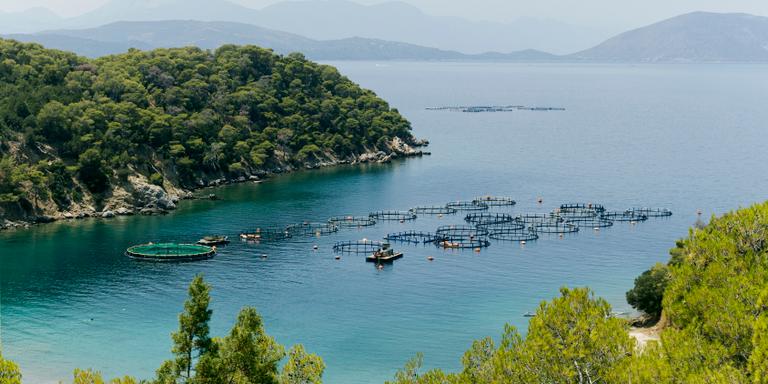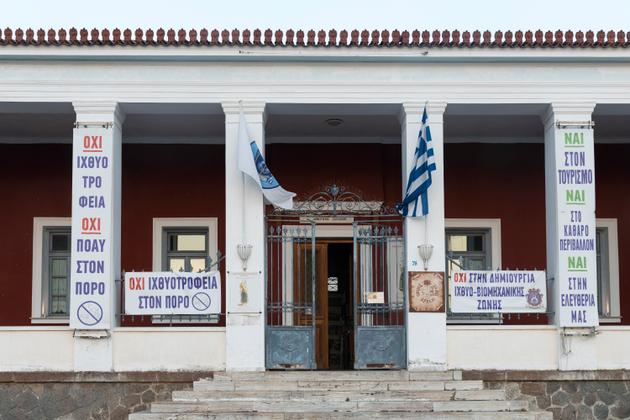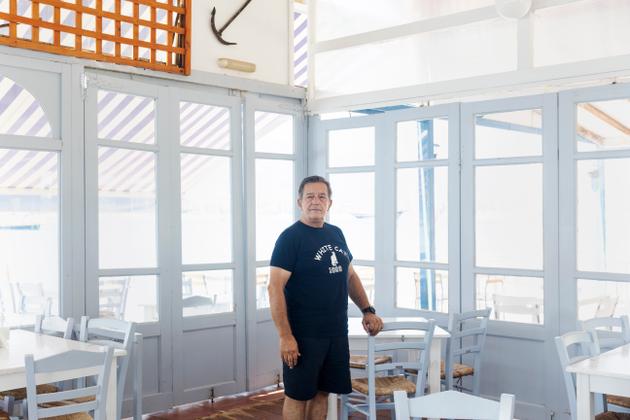


The Greek island of Poros' fierce opposition to the uncontrolled growth of fish farming
FeatureDesignated by the Greek government as a strategic area for aquaculture, Poros could soon see a quarter of its coastline invaded by fish breeding ponds. Local residents are up in arms against the project, which they believe will negatively impact tourism.
In the peaceful bay of Poros, a small island in the Saronic Gulf an hour and a half from Athens, the director of the NGO Katheti, Fay Orfanidou, is not lulled by the heat. For months, she has been campaigning against a project from the Greek government to transform her island into a strategic zone for the development of fish farming.
A quarter of the island's coastline could soon be invaded by fish-farming ponds in coves whose turquoise-green waters had until now remained unspoiled. Poros already has four such ponds, created in the 1990s in the north of the island. But the new project, spearheaded by Avramar, plans to increase sea bream and sea bass production eightfold to 8,831 tonnes in only five years.
"What's the point of conducting intensive farming on an island that relies over 90% on tourism and attracts visitors thanks to the quality of its waters?" said Orfanidou, who launched an online petition. According to the activist, the environmental study commissioned by Avramar – the European leader in sea bass and sea bream production, whose shareholders are US (Amerra Capital Management) and Emirati (Mubadala) investment funds – indicated that the waste produced by the aquaculture activity will be equivalent to that of a town of 35,000 people. Poros has just 3,500 residents.


Sitting on the terrace of his White Cat tavern, Andreas Kaikas, a member of the local committee of tourist businesses, believes the four fish farming ponds set up in the north of the island have already had damaging effects: "When I was a child, I used to go diving in this part of the island. The seabed was magnificent and full of fish. Now they're completely bare, with no algae. What will we leave to our children?" he wondered.
'Low carbon activity'
The accumulation of waste, fish excrement and even nitrogen-rich dead fish threatens marine life, particularly posidonia, the aquatic plant that is used as a refuge by many species and oxygenates the water. Its presence is proof of the clarity and quality of the sea. Petros Varelidis, a special advisor at the Ministry of the Environment, confirmed that fish farming activities are "forbidden where posidonia beds are present in the area." "The study commissioned by the company claims there is no posidonia, even though it is visible even to the naked eye in several parts of the island," Orfanidou objected. The northern region, which is not accessible by road, is also the wildest and home to monk seals, a protected species; herons; cormorants; and sea turtles.
You have 65.75% of this article left to read. The rest is for subscribers only.
